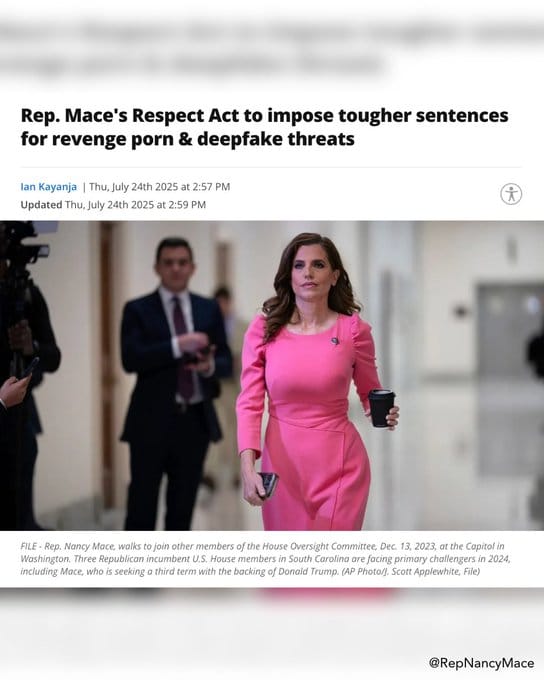Delete Your Emails to Save Water? The UK's Drought Advice Explained

What's Actually Happening
If you've seen headlines about the UK government telling people to delete old emails to "save water" during a drought, you might be confused - or even concerned about digital censorship. But the reality is more mundane than Orwellian: this is about data center water consumption, not government overreach.
During Britain's worst drought since 1976, the UK's National Drought Group declared a "nationally significant incident" with five areas officially in drought and six more experiencing prolonged dry weather. Among traditional water-saving tips like fixing leaky toilets and taking shorter showers, officials added an unusual suggestion: "Delete old emails and pictures as data centres require vast amounts of water to cool their systems."
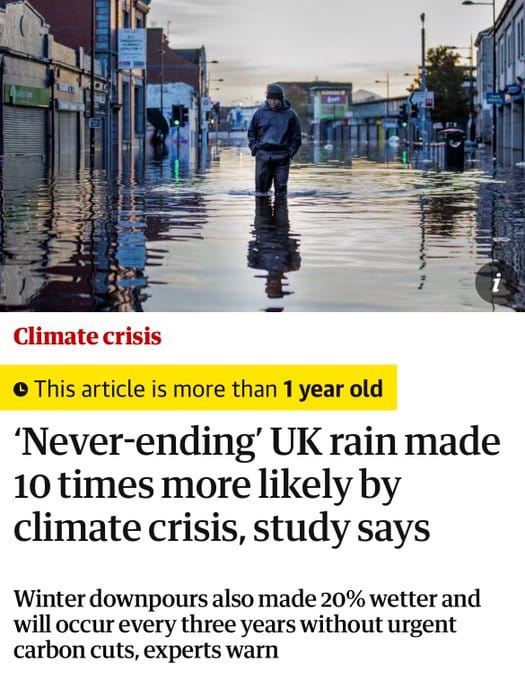
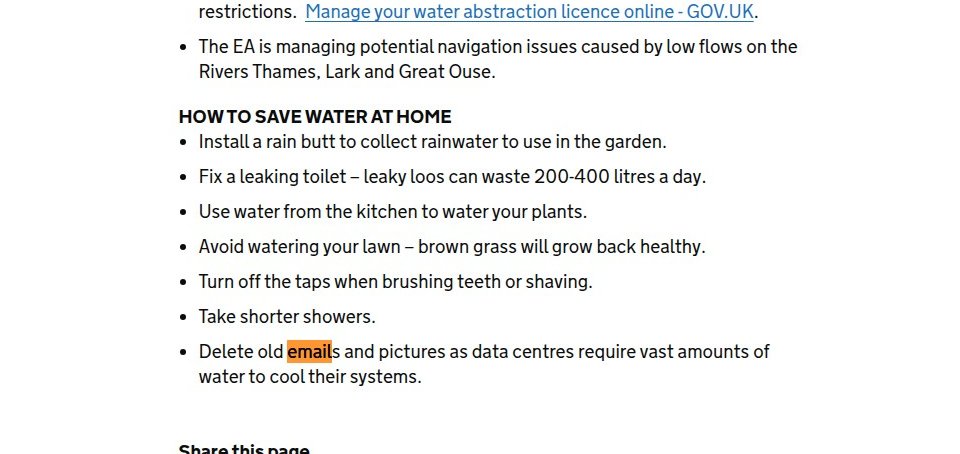
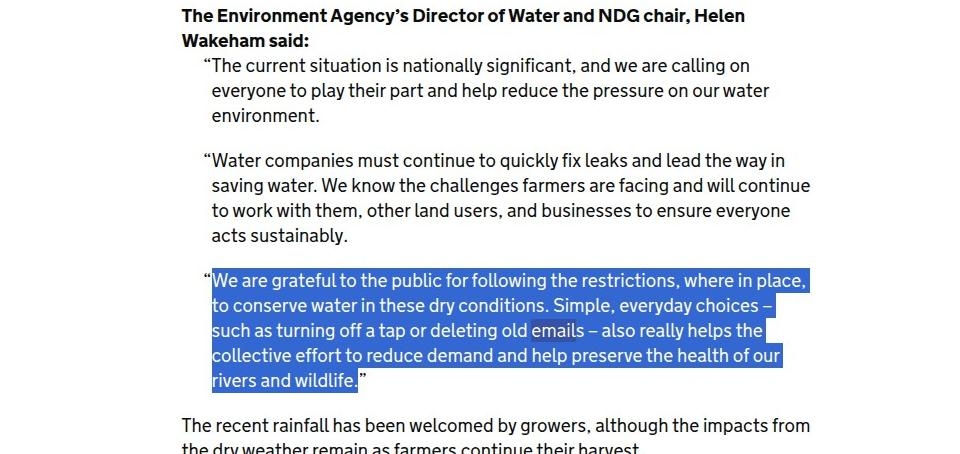
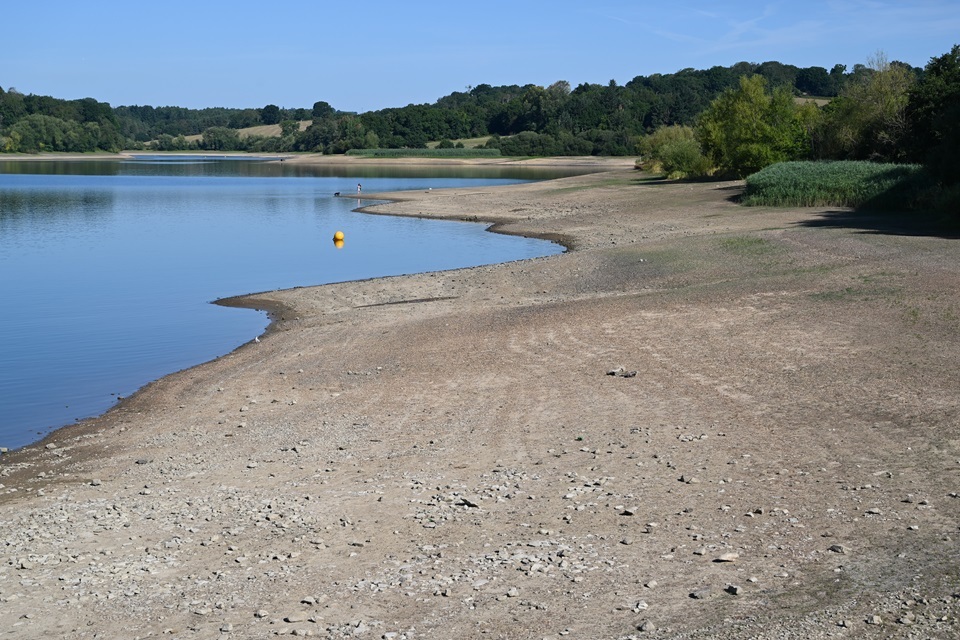
The Data Center-Water Connection
The link between your digital storage and water consumption isn't immediately obvious, but it's real. Data centers consume water directly for cooling, in some cases 57% sourced from potable water, and indirectly through the water requirements of non-renewable electricity generation.
Here's how it works:
- Server Cooling: Data centers generate enormous amounts of heat from thousands of servers running 24/7
- Water-Based Cooling: A medium-sized data center can consume up to roughly 110 million gallons of water per year for cooling purposes, equivalent to the annual water usage of approximately 1,000 households
- Evaporative Loss: According to researchers, about 70-80 percent of the water that enters a cooling tower is actually consumed, the rest is used to flush out mineral deposits
The scale is staggering. A single data center uses several million gallons/liters of water each year, and Google's data centers consumed about 8.1 billion gallons of water in 2024 - nearly double their 2021 consumption.
Why the UK's Advice Misses the Mark
While the connection between digital storage and water use is real, the government's advice to delete emails is largely ineffective for several reasons:
Minimal Impact: Deleting emails and pictures should have no significant effect on water consumption, and might even make it worse for data centers that use certain types of evaporative cooling. Individual email deletion doesn't meaningfully reduce server loads or cooling needs.
Displacement, Not Reduction: When you delete an email, you're typically just moving it to a trash folder that still requires storage and cooling. True deletion often happens much later during routine data center maintenance.
Missing the Real Culprits: In the USA, data centre water consumption (1.7 billion litres/day) is small compared to total water consumption (1218 billion litres/day), but the focus should be on data center efficiency rather than individual user behavior.

The Broader Pattern: Digital Control Through Crisis Narratives
The email deletion advice doesn't exist in a vacuum. It's part of a broader expansion of UK government guidance and oversight over digital behavior, using multiple justifications:
The Perfect Storm of Digital Control:
- Environmental Justification: "Delete emails to save water" (even during flooding)
- Safety Justification: The Online Safety Act requiring extensive content moderation, age verification, and platform compliance
- Security Justification: Cross-border enforcement cooperation with EU Digital Services Act
- Child Protection: Expanding definitions of "harmful content" requiring proactive removal
The Climate Contradiction Exposes the Pattern
The most telling aspect isn't the water-email connection itself, but the timing. As government officials urged email deletion for drought relief, other parts of the UK were experiencing unprecedented flooding. This contradiction reveals how environmental crises can be selectively invoked to justify digital behavior modification, regardless of actual local conditions.
Regional Absurdity: Residents in flood-affected areas were simultaneously told to:
- Delete emails to save water
- Evacuate their homes due to excess water
- Accept that "never-ending rain" is the new normal
This isn't policy coherence - it's crisis opportunism.
The Privacy and Digital Rights Angle
This incident reveals critical concerns for privacy advocates:
Data Minimization vs. Environmental Impact
The UK's guidance inadvertently touches on a core privacy principle: data minimization. However, encouraging mass deletion of personal data as an environmental measure sets a concerning precedent. What happens when governments start framing privacy as an environmental issue?
Corporate Responsibility vs. Individual Action
The UK government has aggressively pushed for more data centers in the UK, calling for around 6GW in AI compute by 2030 while simultaneously asking individuals to delete personal data. This shifts responsibility from corporate water management to personal data management.
Transparency Gaps
A 2016 report found that fewer than one-third of data center operators track water consumption, and reporting on water usage is not as widespread as reporting on power consumption or energy efficiency. How can users make informed decisions about their digital footprint without transparency from service providers?
What Actually Works (And What This Really Reveals)
Instead of deleting emails during a climate crisis that includes both drought and flooding, here are more effective approaches:
For Users:
- Ignore Contradictory Government Guidance: When policy advice doesn't match local reality (like water conservation during floods), question the underlying agenda
- Choose Efficient Providers: Research which cloud providers use renewable energy and efficient cooling systems
- Reduce High-Impact Activities: Video streaming uses far more server resources than stored emails
- Focus on Real Impact: Delete large files and redundant backups, not text emails
For Systemic Change:
- Advanced Cooling: Technologies like liquid immersion cooling can reduce water consumption significantly
- Regional Planning: Data centers should be located based on local climate conditions and water availability
- Transparency Requirements: Mandate public reporting of water consumption by data center operators
For Spotting Digital Control:
- Question Crisis Timing: When digital behavior guidance doesn't match current conditions, ask what else might be driving the policy
- Look for Pattern Stacking: Notice when multiple justifications (safety, environment, security) are used simultaneously to expand digital oversight
- Demand Local Relevance: Environmental policies should match local environmental realities

The Bigger Picture: Crisis-Driven Digital Control
This incident perfectly illustrates how governments can use crisis narratives to normalize digital behavior guidance, even when the justifications don't hold up to scrutiny.
The Pattern Recognition Test:
- Online Safety Act: "Delete harmful content to protect children"
- Drought Policy: "Delete emails to save water"
- EU Cooperation: "Delete misinformation to protect democracy"
- Future Crisis X: "Delete [content type] to address [emergency]"
The Climate Contradiction Reveals the Strategy: When the same government issues water conservation advice during floods, it exposes that the real goal isn't environmental protection - it's normalizing government guidance over personal digital choices. The environmental justification becomes a vehicle for expanding digital oversight.
Why This Matters Beyond Privacy: As AI and cloud computing expand, governments worldwide are seeking new justifications for digital regulation. Climate change provides a perfect crisis narrative because:
- It's ongoing and global
- It affects everyone
- It can justify almost any behavioral change
- It positions dissent as environmental irresponsibility
The Precedent Problem: Today it's "delete emails for water." Tomorrow it could be "limit cloud storage for carbon" or "reduce social media use for server efficiency." Each seemingly reasonable request creates precedent for the next, more intrusive guidance.
Privacy advocates should pay attention to how environmental crises might be used to justify digital restrictions, especially when the environmental claims don't match environmental realities.

Key Takeaways
- It's Not Just About Environment: The UK's email deletion advice reveals a pattern of using crisis narratives to justify digital behavior guidance, regardless of local reality
- Timing Exposes Agenda: Advising water conservation during floods undermines environmental credibility and suggests other motivations
- Crisis Stacking: Notice how multiple justifications (safety, environment, security) are simultaneously used to expand digital oversight
- Pattern Recognition: This follows the same playbook as the Online Safety Act and EU digital cooperation - different crises, same expansion of control
- Precedent Risk: Each "reasonable" crisis-driven digital guidance creates precedent for more intrusive future policies
- Local Reality Matters: When digital policies ignore local conditions (like floods vs. drought), question what's really driving them
The UK's contradictory drought advice during flooding isn't just poor policy - it's a revealing glimpse into how crisis narratives can be deployed to normalize government guidance over personal digital choices. For privacy advocates, this is a masterclass in recognizing when environmental protection becomes a trojan horse for digital control.
The solution isn't just better technology or smarter policies - it's vigilant resistance to crisis-driven digital guidance that doesn't match crisis reality.
For privacy-focused readers, this incident is a crucial case study in recognizing crisis-driven digital control. When governments issue digital behavior guidance that contradicts physical reality (like water conservation during floods), it's time to ask what agenda is really being advanced. True digital sustainability requires protecting both our data and our autonomy to make informed choices about our digital lives.






